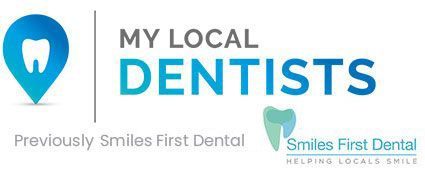Bad Breath: 5 Ways to Check and Improve Your Breath

Bad breath, known as halitosis, can sneak up on you without warning. While you may think you’re safe after brushing your teeth or popping a mint, the truth is that most people get used to their scent and may not realise there’s a problem.
That’s why the common habit of breathing into your hand isn’t always the most reliable way to check.
Whether you’re heading into a meeting or greeting someone up close, knowing how to check your breath—and what to do if something’s off—can make all the difference.
If you’re looking for effective bad breath treatment or simple ways to improve breath, these five practical strategies will help you stay fresh and confident throughout the day.
1. Use the Spoon Test
The spoon test is one of the easiest and most accurate ways to check your breath. All you need is a clean metal or plastic spoon.
- Gently scrape the back of your tongue with the spoon.
- Wait for a few seconds, then smell the residue on the spoon.
If it smells foul, that’s a strong sign your breath isn’t as fresh as you think. This test helps you detect sulphur-producing bacteria that commonly cause bad breath. The first step in treating bad breath effectively is figuring out where it comes from.
2. Floss and Smell the String
Bad breath often hides between teeth, especially if food particles are left to sit and rot. Dental floss is an easy way to test for this.
- Floss between a couple of your back teeth.
- Smell the floss afterwards.
If it has a foul odour, bacteria and decaying food may be the cause. Regular flossing helps detect and improve breath by removing the debris your toothbrush might miss.
3. Use a Tongue Scraper Daily
Did you know that your tongue can be a hotspot for bacteria? Even with regular brushing, the grooves and texture of your tongue can harbour bacteria that contribute to unpleasant breath.
Using a tongue scraper every day, compared to brushing alone, helps eliminate bacteria and improve breath freshness. It’s an easy and underrated habit that plays a significant role in treating bad breath.
If a scraper isn’t available, brushing your tongue gently with your toothbrush is still beneficial.
4. Stay Hydrated and Avoid Dry Mouth
Dry mouth is among the most serious lifestyle factors that cause bad breath. Saliva naturally removes microorganisms and food particles from the mouth.
When your mouth is very dry, it could be because of dehydration, drug use, or keeping your mouth open at night. Bacteria then reproduce, causing a foul smell.
Make it a habit to drink water throughout the day. Additionally, chewing sugar-free gum can increase salivation, which keeps your mouth moist and helps with breath. Limiting caffeine, alcohol, and smoking can also help reduce dry mouth.
5. See Your Dentist for a Breath Check
If you’ve tried at-home solutions and still feel self-conscious, it might be time to see your dentist. Chronic bad breath may indicate underlying oral conditions such as cavities, infections, or gum disease.
Professional bad breath treatment often includes:
- Deep cleaning (scale and clean) to remove plaque and tartar.
- Treating any gum problems that may be causing foul odour.
- Addressing tooth decay or poorly fitted dental work.
Your Northmead dentist can also recommend specific oral care products tailored to your needs and check for non-oral causes of halitosis, such as sinus infections or digestive issues.
Boosting Your Breath Confidence Daily
Checking and managing your breath should be part of your everyday routine.
Here are a few extra tips to maintain freshness:
- Rinse with mouthwash: Antibacterial mouthwash can reduce bacteria and add a clean scent, but don’t rely on it alone.
- Snack smart: Crunchy fruits and vegetables like apples and carrots help cleanse your mouth naturally.
- Monitor your diet: Garlic, onions, and certain spices can linger. Try to balance your meals with fibrous foods and drink water after eating.
- Replace your toothbrush every three months—or sooner if the bristles are frayed.
You can enjoy a fresher breath daily with consistent habits and a proactive approach. Not only will you feel more comfortable in social situations, but you’ll also improve your overall oral health.
When to Seek Professional Help
If your efforts to improve breath don’t seem to work and the problem persists for a few weeks, it’s worth speaking with your dentist.
Persistent bad breath may indicate conditions requiring prompt attention, making it more than a superficial problem.
At My Local Dentists, we take your oral health seriously. Our team is here to support you with a comprehensive approach to bad breath treatment, combining preventive care, thorough assessments, and tailored guidance.
Don’t let bad breath affect your confidence or your day-to-day interactions. Let’s work together to find a solution that keeps your breath fresh and your smile healthy.
Bad Breath Treatment in Northmead
If you’re noticing signs of persistent bad breath or want to ensure your mouth is as healthy as it can be, we’re here to help.
Book your appointment with your Northmead dentist today. We’ll help you manage your oral hygiene and lead you through doable actions to improve your breath over the long run.
Contact (02) 9630 9996 or visit us at 19/5-7 Kleins Rd in Northmead.
